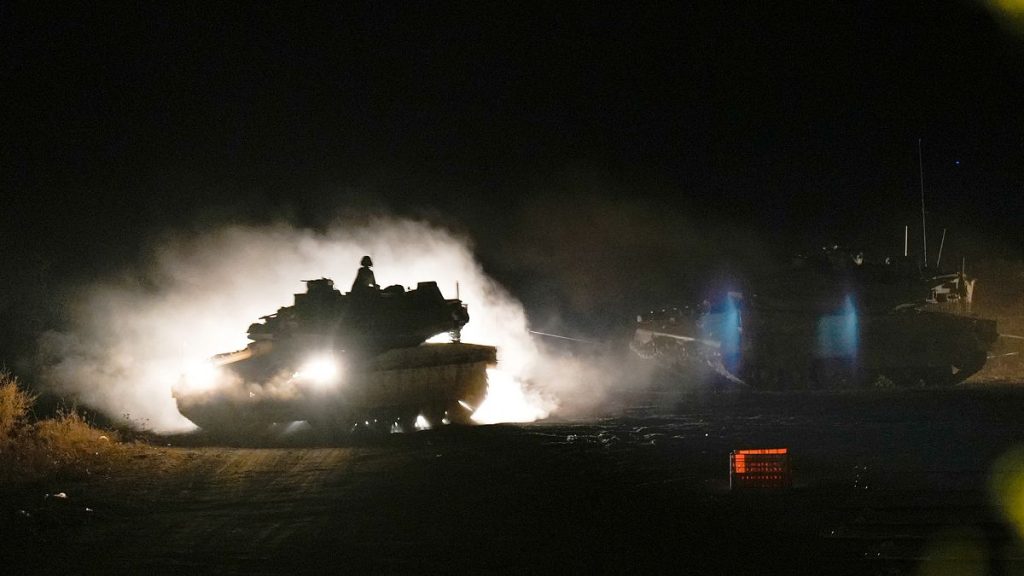The ongoing conflict in the Middle East has escalated to the point of potential regional war, which could have significant implications for Europe and the rest of the world. The European Union, in particular, is feeling the effects of being too divided on the matter, as pointed out by Prof Luigi Narbone, a former EU ambassador to Saudi Arabia and Gulf countries. The warning comes as G7 leaders have called for de-escalation and a decrease in tensions along the Israel-Lebanon border. There is concern that the perceived double standards of Europe, particularly in its ambivalent attitude toward the Middle East conflict, may damage the EU’s credibility and its defense of fundamental values. The lack of stability in the region is also linked to migration flows, as people flee war-hit areas, making it crucial for Europe to find a solution to the crisis.
The Italian government, which currently holds the presidency of the G7, is pushing for the United Nations Security Council to consider strengthening the mandate of the United Nations Interim Force in Lebanon (UNIFIL) and extending its powers and responsibilities. UNIFIL has stated that it will remain in place, despite the recent developments in the conflict. The mission has emphasized that any crossing into Lebanon violates Lebanese sovereignty. However, diplomatic efforts to achieve a resolution to the conflict have so far failed to yield concrete results, as Israel launched a ground incursion into Lebanon and engaged in clashes with Hezbollah militants along the border. The IDF has carried out deadly airstrikes to support the campaign, resulting in significant displacement and casualties in Lebanon.
The situation in the Middle East has further polarized Europe and the world, with experts warning of the potential for a wider regional war and its implications for the EU and the continent as a whole. The G7 leaders have stressed the need for de-escalation and the easing of tensions along the Israel-Lebanon border. The perception of double standards in Europe’s approach to different conflicts, such as with Russia and the Middle East, has raised concerns about the EU’s credibility and its commitment to fundamental values. The crisis also has economic consequences and is directly linked to migration flows from war-hit regions. Finding a resolution to the conflict is essential for Europe, as it could affect stability in the region and impact global dynamics, including the role of Russia in Syria.
The ongoing violence between Israel and Hezbollah in Lebanon has resulted in significant casualties and displacement of people in the region. Diplomatic efforts to ease tensions and achieve a resolution to the conflict have thus far been unsuccessful. Israel’s ground incursion into Lebanon and clashes with Hezbollah militants have intensified the crisis, with the IDF conducting deadly airstrikes to support the campaign. Hezbollah leaders have been killed, further escalating the violence. Authorities in Lebanon have reported over 1.2 million people displaced and more than 1,300 killed. The situation remains volatile, with no clear resolution in sight, and the impact of the conflict is expected to be far-reaching.
The Italian government, as the current president of the G7, is advocating for stronger UN involvement in Lebanon to address the escalating crisis. The United Nations Interim Force in Lebanon (UNIFIL) has insisted on maintaining its presence, despite the recent developments. The mission has emphasized the importance of respecting Lebanese sovereignty and has called for measures to de-escalate the conflict. However, the complex political dynamics and military actions on the ground have impeded efforts to achieve peace. The EU’s divided stance on the matter, along with concerns about double standards in its foreign policy approach, have further complicated the situation. As the conflict continues to escalate, the need for a diplomatic solution becomes increasingly urgent to prevent further loss of life and instability in the region.


